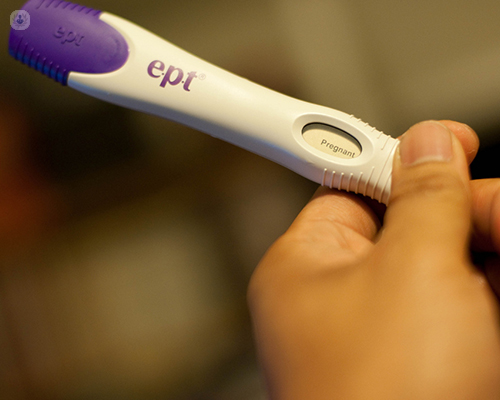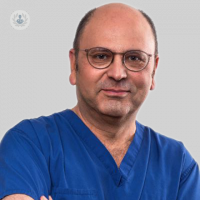FAQs: in vitro fertilisation (IVF) – part 1
Written by:In vitro fertilisation is a form of fertility treatment that can help women to get pregnant. Dr Benjamin Abramov, a leading fertility specialist, answers some frequently asked questions about IVF.
What is IVF?
Before we discuss what IVF (in vitro fertilisation) is, we should perhaps talk a little bit about natural conception. In order to achieve a successful natural conception, we need to have a robust ovulation process. This is the process by which an egg is released from the ovary, normally on a monthly basis. We also need sperm of good quality. Sperm of low count or sperm of low motility will not allow fertilisation. We also need healthy tubes. The fallopian tube is there to collect the egg from the ovary when the egg is released and it allows passage of sperm from the uterus into the tube so fertilisation can occur.
Hence, IVF is essentially a process or treatment during which the location of fertilisation is changed. It is no longer in the fallopian tube, and fertilisation occurs in the lab in a dish.

Who can benefit from IVF?
- Blocked tubes:
The first cases of IVF were meant for treating women with blocked fallopian tubes. If the fallopian tube is damaged, it cannot collect the egg that is released from the ovary and it cannot allow passage of sperm into it. Therefore, fertilisation cannot happen.
- Low sperm count:
Once we started treating couples with all sorts of fertility issues, we realised that IVF can also help in the case of men with a low sperm count. By putting the sperm in a dish with the egg and saving the sperm from needing to swim through the uterus into the fallopian tubes to fertilise the egg, we increase the chances of fertilisation.
- Unexplained subfertility:
Finally, we found that couples who have a normal ovulation process, normal fallopian tube, normal sperm count and suffer with what we call unexplained subfertility can also benefit from IVF treatment.
What is the procedure?
IVF treatment can be carried out using the female natural cycle. During such a cycle, only one egg is matured and only one egg is retrieved. Alternatively, we can give the female patient medication to cause maturation and collect several eggs. It appears that this second method is associated with a better pregnancy rate and the vast majority of IVF treatment cycles that we carry out nowadays use ovarian stimulation.
After a period of ovarian stimulation when there are several eggs matured, these eggs need to be collected by a minimally-invasive procedure that is normally done in theatre under sedation. The eggs retrieved are given to a scientist and embryologist who incubate the sperm with the egg in a dish overnight. The following day the scientist looks at the fertilisation of the eggs and at this point, it is already possible to put back one or more fertilised eggs into the patient. However, normally we keep the fertilised eggs in the lab for a bit longer to see how the embryos develop and then we transfer one or two good quality embryos into the uterus on day two, three, four or five.
How long does a course of IVF treatment take?
The first part of treatment which involves either egg maturation with ovarian stimulation or monitoring of the natural cycle takes between 10-14 days. During this period the female partner will be requested to come to the clinic for a few scans to monitor the development of her follicle, or follicles if it is a stimulated cycle.
The egg collection is a day-case procedure, taking half an hour. You can expect to spend two hours in the unit before you can go home. It then takes between two to five days after egg collection to transfer the embryos and then about ten days to know whether you are pregnant or not. The whole process should take you around 28 days, from the start of the process until you know whether you are pregnant or not.
How much does IVF treatment cost?
The cost of treatment varies between patients and between clinics. Not all patients need the exact same treatment and, therefore, the cost may change and some units charge more for the same services than others. My advice to you is to contact your clinic and get a cost estimate for the specific treatment you are going to need.
Am I too old for IVF?
Generally speaking, once you reach the age of 45, the chances that IVF will result in the birth of a baby are estimated to be around 1%.
If you are considering fertility treatment, make an appointment with an expert to find out about your options.


